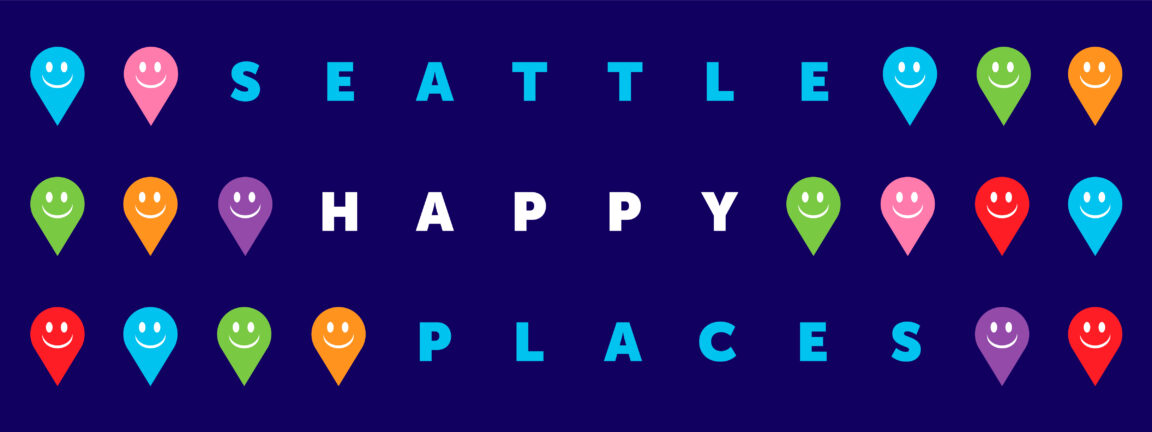

- August 15-23
Presented by:
Visit the Seattle Happy Places website at any time during the Seattle Design Festival!
Team: Hannah Rudin and Rosie Sabaric
Seattle Happy Places invites you to find Happy Points in your community that inspire you, bring you joy, and recognize the unrecognized in good design. As Seattle navigates ongoing crises in these emotionally-charged times, there are stories of people noticing the stunning landscaping of their neighborhood park, the interestingly shaped tree, or the typography of house numbers. We invite you to share these places with each other and the broader Seattle community by capturing them in a happiness map.
Share photos of these places with us on social media @seattlehappyplaces, or #SeattleHappyPlaces, including rough or exact coordinates to help us build a happiness map of Seattle Happy Places. By displaying where others have marked these spaces, the Happiness Map seeks to celebrate community, public space, and personal care in times of stress.
Throughout the Festival, we will also highlight local businesses and resources on the Happiness Map, including cafés, shops, schools, and libraries that support their communities. Please visit these locations, following public safety guidelines, and check in on the map to show your appreciation!
Outdoor “Seattle Happy Places” signs will feature high-contrast colors and font sizes that are visible for low sight readers. We will ensure the ADA accessibility standards are met on our web site and map by using the UserWay widget and checking against accessibility best-practices for our platforms. We are adding alt-text to all images posted on the website and Instagram, and will also encourage Happy Point submissions that are not written in English.
Accessibility for this project also includes accessibility of physical spaces; we will curate Happy Points to ensure that the majority are publicly-accessible, physically accessible to people with a variety of abilities, and support equitable or primary access for underserved demographics.







